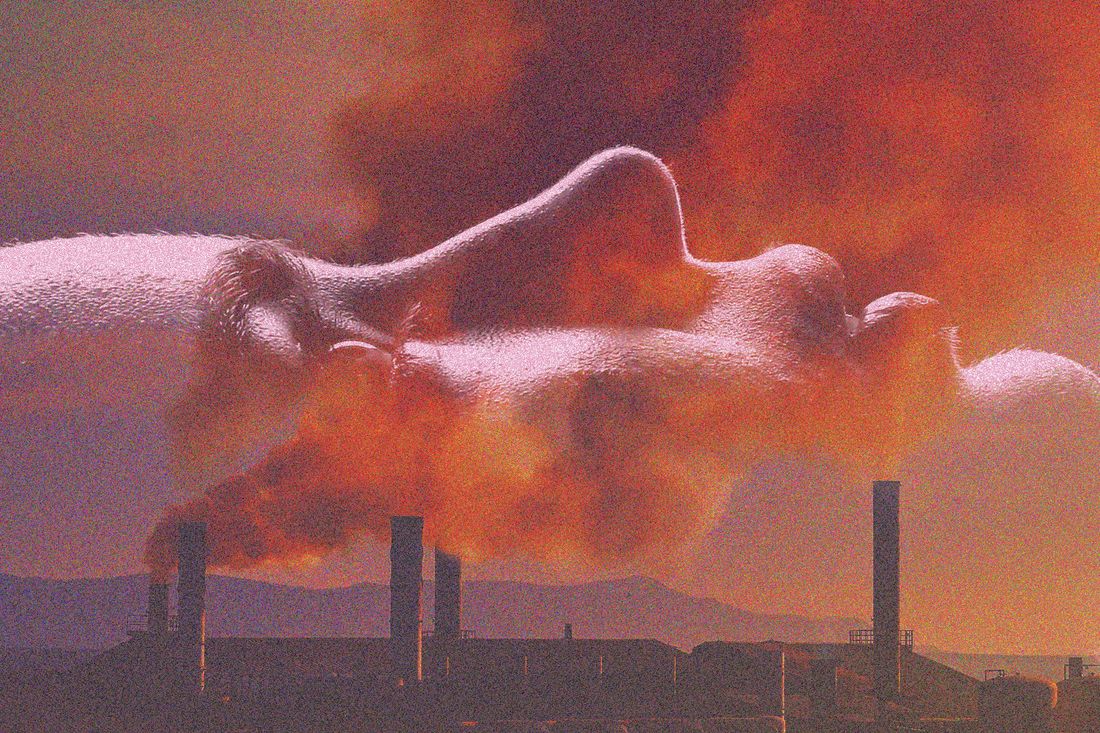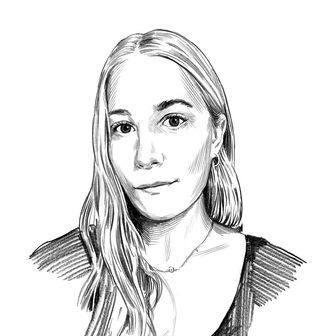
Seven years ago, when I started talking incessantly about the climate crisis, my parents thought I was having a mental breakdown. It was 2014, and the drought in California that summer was particularly bad — the driest year in nearly a century before that record was surpassed this past summer. My dread stretched beyond what I saw in my suburban Los Angeles surroundings, in the crunchy grass and smoggy skies. After staying up into the night reading about melting ice sheets, I began having nightmares about tsunami waves swallowing my family’s house. My parents sent me to my therapist, Ken, who gently suggested my condition was related to post-traumatic-stress disorder from a sudden loss a few years earlier, and that made a comforting kind of sense.
In September, I asked Ken if, should I present the same symptoms again today, he would offer the same diagnosis. It was a few weeks after Hurricane Ida set a record for rainfall in New York, breaking the one that had been set less than two weeks before and turning the streets of my low-lying neighborhood into toxic lagoons. After thinking about my question for a few days, Ken told me that his approach had changed: “It would be easier now for me to tell you, honestly, that you’re in good company.”
Ken meant that, in 2021, I am just one of many patients coming into his office wanting to talk about the climate crisis. It’s a lot harder to argue today that negative emotions related to what is happening to the planet might really be about something else — there is no longer anything else. According to a Yale study, 70 percent of Americans are now “very or somewhat worried about global warming.” One recent survey of 10,000 young people found that more than half agreed with the statement “Humanity is doomed.” A term for this collective malaise is having its moment: climate anxiety, a catchall for emotions including dread, grief, fear, depression, and sadness about the climate crisis. (Variations include climate grief, ecogrief, and eco-anxiety.) According to Grist, Google searches for the term worldwide increased 565 percent over the past year.
It’s nothing new for doctors to treat the mental health of people who have suffered through the violence of extreme-weather events; their symptoms are often diagnosed as those of PTSD. But treating the mental health of people anticipating this imminent suffering is relatively uncharted territory. Therapists say increasing numbers of their patients are unable to stop reading the news or picturing their loved ones dying. They are worrying about whether to have children or about the fates of the children they’ve already had. In 2013, forensic psychiatrist Lise Van Susteren popularized the term pre-TSD, a more specific alternative to climate anxiety. “Anxiety refers to something happening in the mind,” says Margaret Klein Salamon, an activist and a former clinician known as “the Climate Psychologist.” “What is happening to the climate is physical.”
To reach the climate-anxious, therapists and doctors in the vanguard have begun designating their practices as “climate-aware.” A professional group of like-minded clinicians, the Climate Psychology Alliance, has created a searchable network of these doctors online, and a website called inclusive-therapists.com now allows patients to search for therapists who deal with climate anxiety. Methods vary depending on clinical specialty. Ashley Hamm, in Houston, employs compassion-focused therapy, asking patients to write kind letters to their most anxious selves. Noah Oderberg, a psychologist in Oakland, uses a tactic called guided imagery with those who can’t get horrifying, graphic depictions of disasters out of their head. He’ll ask them to picture a place, usually outdoors, that feels safe and happy to encourage positive associations with nature. After our interview, he sent me some photos of redwood trees.
For its members, the climate-aware movement is a chance for mental-health professionals to avoid dropping the ball on the most existential calamity in human history, to normalize and validate people’s feelings as they awaken to the severity of the changes taking place. But the field is still in its infancy, and climate anxiety has not yet been added to the Diagnostic and Statistical Manual of Mental Disorders. (Oderberg jokes that if it had been, he’d be able to code for this type of treatment so his patients could bill their insurance companies for climate anxiety specifically; for now, plain old “anxiety” suffices.) Beyond a handful of reports and polling from the American Psychological Association, there is little professional guidance for therapists or psychologists on how to address climate anxiety. Van Susteren and others are pushing the APA to ramp up special committees that would train clinicians to treat it, just as they are starting to be trained to handle social issues like racism and gender bias. Grad schools, they argue, should do the same.
But even those pushing for more awareness around the climate crisis and mental health are sober about the practical limits of tackling the issue in a therapy setting. “Therapy has long been about cultivating an individualist frame. It’s all about you and your life and your story,” says Salamon. “You’ve got to fix yourself.” There is a danger that existential anguish about the future of the world will not be directed toward collective action but subsumed into the inequities of our larger health-care system: In the U.S., “mental health” is for profit, hyperindividualized, and mainly for the privileged.
“We don’t even have a mental-health-care system in this country. We’re not good at grief,” worries Amy Westervelt, a journalist who hosts a podcast about oil companies called Drilled. “It opens up a huge vacuum for private enterprise to dominate that space.” Just as quick-and-dirty delivery methods have proliferated in the digital-therapy world, climate anxiety’s rise creates an opening for a wave of therapists, entrepreneurs, and influencers who may merely help people feel better so they can move on. “As climate grief mainstreams,” Naomi Klein, the activist, author, and, currently, professor of climate justice at the University of British Columbia, told me, “I worry the response is that we need to have a kind of pause in activism in order to grieve.”
It does seem ominous that as quieter emotions like anxiety and grief become legitimized, unruly, confrontational ones — rage, frustration, fury — still strike many as unpalatable. (In October, after a group of Extinction Rebellion activists blockaded the entrances to several banks, the Manhattan district attorney offered them a plea deal that included “individual counseling” sessions for those arrested, as if they could be cured of their outrage.) There is actually a word for anger “targeted at those who command the forces of Earth destruction”: terrafurie, coined by the Australian philosopher Glenn Albrecht. Albrecht is better known for solastalgia — the emotions a person experiences because their home has been fundamentally altered — but he says that he regrets the term’s becoming widely used, at least in the academy. “The fact that the word is gaining traction means we’re in deep shit,” he said in 2018.
Today, Albrecht is similarly critical of terms like ecogrief because they are not disruptive enough of the status quo. “What’s after grief?” Albrecht asked on a video call from his farm in rural eastern Australia, which has seen temperatures so hot in recent years that birds have fallen out of the sky. “We risk falling into a trap of ‘infinite grief,’ ” he warned, in which the depth of our mourning for the past causes us to lose sight of a future worth fighting for. “Therapy is a dead end,” Albrecht said. Asked what he does when his emotions feel oppressive, he says he goes bird-watching.
Earlier this year, Australian researchers conducted a psychological study of mental health and ecoanger. They found that “more intense experiences of frustration and anger” with the climate crisis, rather than depression and anxiety, were associated with greater attempts to do something about it. Kritee Kanko, a climate scientist and Zen Buddhist priest, calls processing climate grief “composting”; done right, it is a fertilizer for action. “Anything that allows us to feel the weight of this moment is potentially radicalizing,” Klein argues. “We need to break our hearts open.”
Related
- Now the Wildfires Are Burning Here
- The Rise of the Climate Anti-Hero
- Hurricane Milton Will Be Bad. The Next One Might Be Even Worse.






























